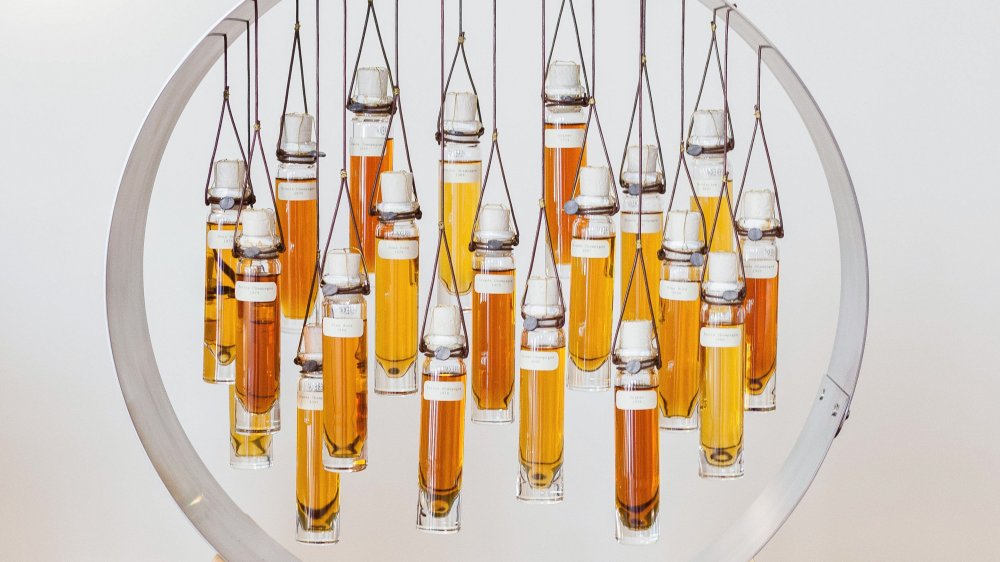The Real Difference Between Brandy And Cognac
Maybe you can recall a time when you were bar-side, perusing the spirits list, perhaps you were trying to impress a date or a potential business partner and you decided to order two cognacs. Secretly you had no idea why you didn't order brandy — is it any different from cognac? You realize your lack of knowledge on the subject is even more vast — what even is brandy? Are people just ordering the latter to seem fancy? You've got questions — and we've got answers.
For starters, brandy has been around since the mid-1500s and is a spirit made from distilling any type of fermented fruit juice (via Thrillist). The name is derived from the Dutch word brandywine which translates to burned wine and is a pretty self-explanatory title.
In most cases, the foundation fruit for brandy is grapes, which basically makes brandy a special, extra-potent wine. Brandy usually is between 90 and 100 proof, and is served most often as a digestif (in other words, it supposedly helps your stomach settle after a meal). Those who aren't in-the-know often mistake brandy for whiskey, but the two are made up of very different ingredients. Brandy is essentially a sort of family of many different types of distilled fruit juice.
Brandy and cognac are sort of the same
Much like Champagne, in order for a brandy to be classified as cognac, it must be made in the Cognac region of France. Obviously brandy is made in all varieties (and all over the world) so essentially cognac is a very special type of brandy. Additionally, there is a Cognac Fine Champagne which is the creme de la creme of brandy. Champagne is derived from the Latin word campania, which means rolling hills consisting of rich soil. Within Cognac, there are six prime grape-growing areas with the titles Grande Champagne and Petite Champagne. So if you are ever lucky enough to enjoy a Cognac Fine Champagne, you'll find the grapes are from a very tiny piece of the world in France with the best growing conditions imaginable (via Business Insider).
Once you understand the complexity of cognac, an $1800 price tag won't seem quite as offensive (maybe). Cognac is enjoyed neat or as the simple and classic "side-car" cocktail. An easy recipe to try if you want to impress guests or sip on your own with a good book is 1.5 oz cognac, .75 oz lemon juice and .75 oz Cointreau/triple sec. Just combine all the ingredients in a cocktail shaker filled with ice. Give it a good rattle and then strain the mix into a sugared cocktail glass (via Town and Country).
Hopefully, next time you order a cognac, you won't be caught off guard when someone asks you why.

